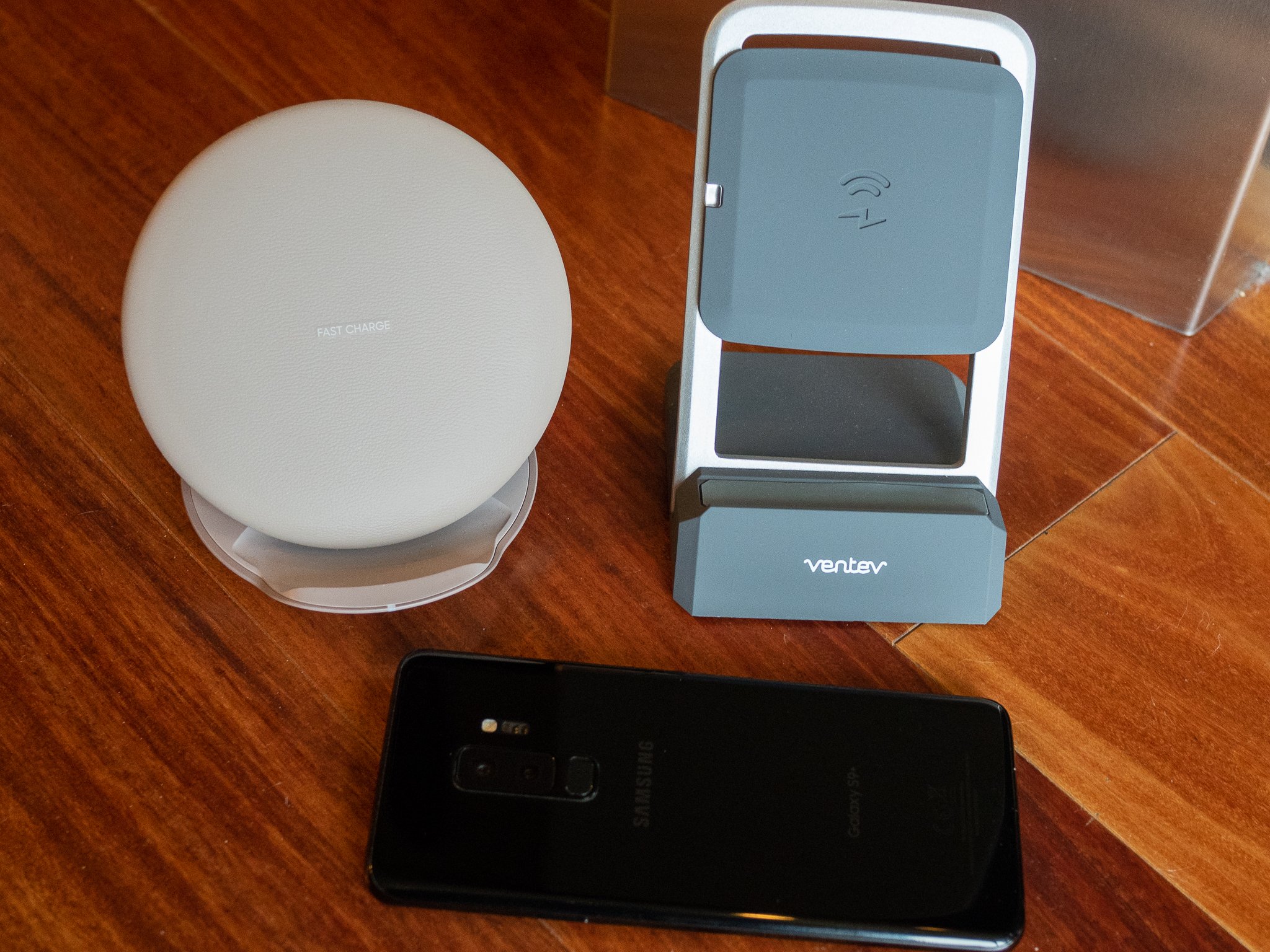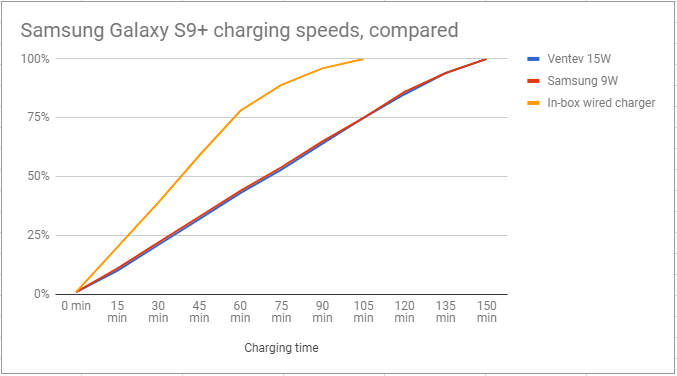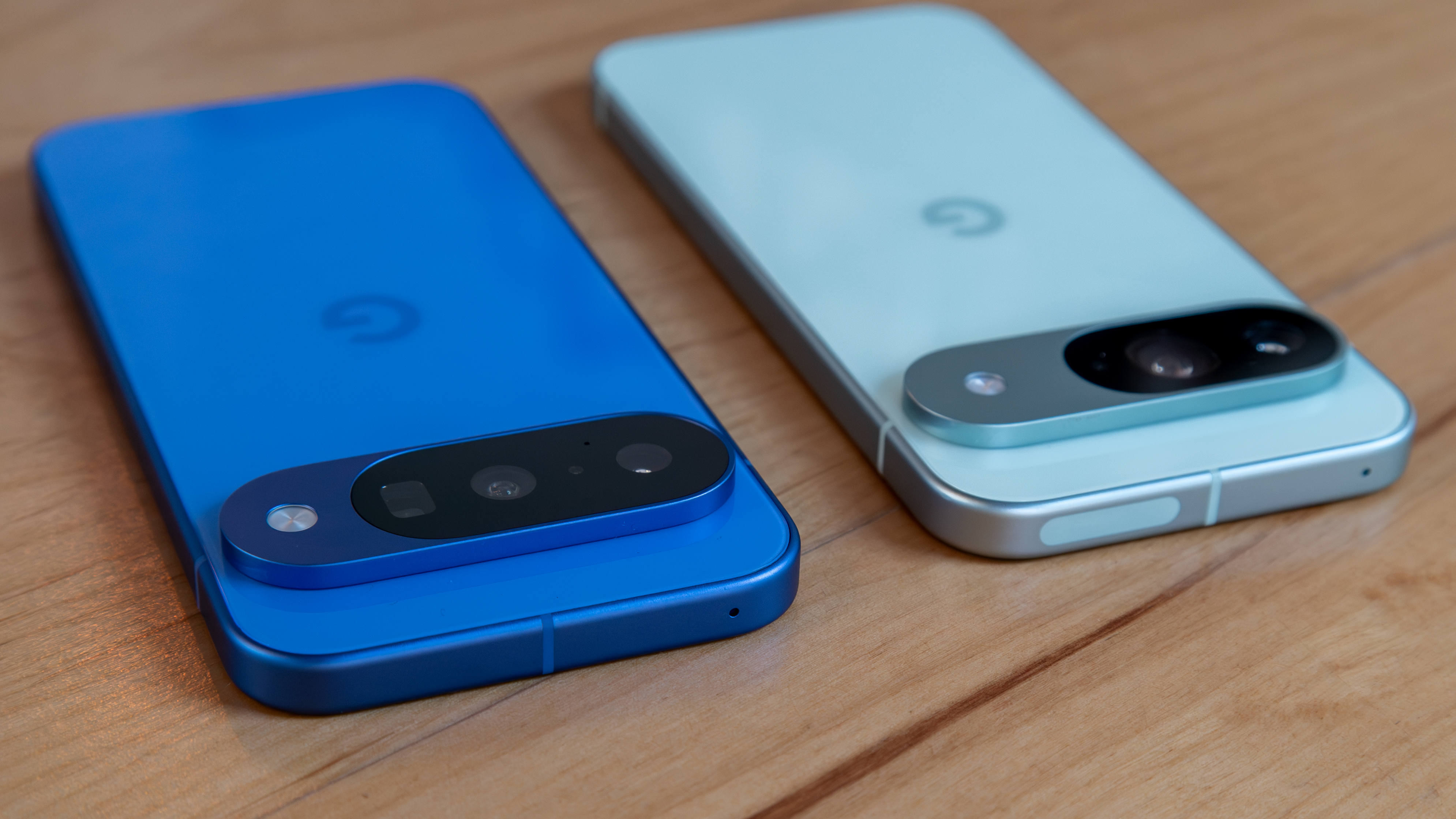Galaxy S9 and 15W Qi wireless chargers: Does it actually charge faster?

This year, Samsung's Galaxy S9 series supports wireless charging. Same as last year, right? Except that there's new hardware inside the phones to wirelessly charge at up to 15 watts, which is twice the speed of most phones (and more than double that of the Galaxy S8).
Charging speed is the only thing keeping some people away from wireless chargers, assuming their phone supports the feature. Even with advancements in the Qi standard and new charging pads, they're still notably slower than wired charging. For Samsung's phones, the sure bet for the fastest charging has always been its own chargers — product reviews for third-party chargers all over the internet are littered with people citing various problems using X phone with Y charger.
Now that Samsung's phones technically support these new speeds, we wanted to see how that translates to real-world usage. Several manufacturers have debuted wireless chargers with 15W of output, a considerable jump over the 10 or 12W previously offered, and far more than Samsung's own chargers that top out at 9W. They're available from Ventev, Griffin, Belkin and Spigen, to name a few. So I bought that Ventev model to see just how much faster it is than Samsung's own charger.
It was a simple test setup: run a Galaxy S9+ down to 0%, then turn it back on while on a charger and see how long it took to reach 100%, measuring every 15 minutes. The tests were done with the phone in airplane mode, to rule out extraneous network activity impacting charge time. For a baseline, I also recorded the charging speed from the in-box Fast Charge wall charger.
The results were disappointing.
Even with a much higher wattage rating, the charging times were identical.
You can see that Ventev's wireless charger, running at a much higher 15W output, charged at a near-identical rate to Samsung's 9W wireless charger. Doing two more rounds of testing, including a run with the phone completely off, yielded the same results within a couple minutes. Both chargers also charged the phone at a very linear rate, about 10-11% per 15 minutes, no matter the charge of the battery; the only outlier being the final 5%, which was unsurprisingly slow. Total charge time was 2 hours 30 minutes, which aligned with the estimate provided on the GS9+'s lock screen — turns out those numbers are generally accurate.
Compare that to the wired charger, which charges at almost double that rate, 20% per 15 minutes, up to about 75% before slowing down. The wired charger gets from 0-50% 30 minutes faster than wireless, and 0-100% 50 minutes faster — a full charge happens in 1 hour 40 minutes.
Get the latest news from Android Central, your trusted companion in the world of Android
Pick your wireless charger for its design, utility and price — not for its claimed higher output.
After collecting all of this data, it looks like Samsung has done us a favor by choosing to not emphasize the wattage ratings of its own chargers and instead simply standardizing to a brand like "Fast Charge." In this case, a purportedly higher-end and "faster" wireless charger didn't yield charging speeds that were faster in any way, yet the Ventev charger is about $55 — more expensive than the current listing for Samsung's latest charger and far more than other lower-wattage chargers.
Now it isn't all bad news. Knowing that you can go buy a third-party wireless charger that charges just as fast as Samsung's is great — and you get more options for designs, form factors and prices without giving up charging speed. And I don't feel Ventev (and all of the other companies listed above) is attempting to mislead anyone — it's simply trying to market its advantage in charging output ... even though as I've shown here, that doesn't translate into an advantage in charging speeds. It's possible the Galaxy S9 series will be updated to support 15W charging (Apple's iPhone 8 and X series was updated through software to increase wireless charging from 5W to 7.5W), and we've reached out to Samsung for details about this.
So after this testing, we know to pick your wireless charger for its design, utility and price — not necessarily its claimed higher output. And when in doubt, know that Samsung's own wireless chargers will provide the fastest speeds for a Samsung phone.

Andrew was an Executive Editor, U.S. at Android Central between 2012 and 2020.

